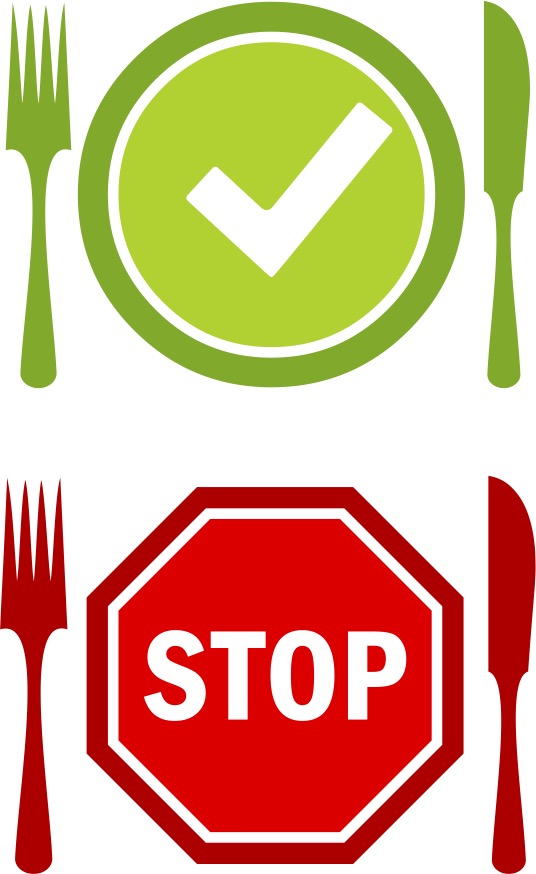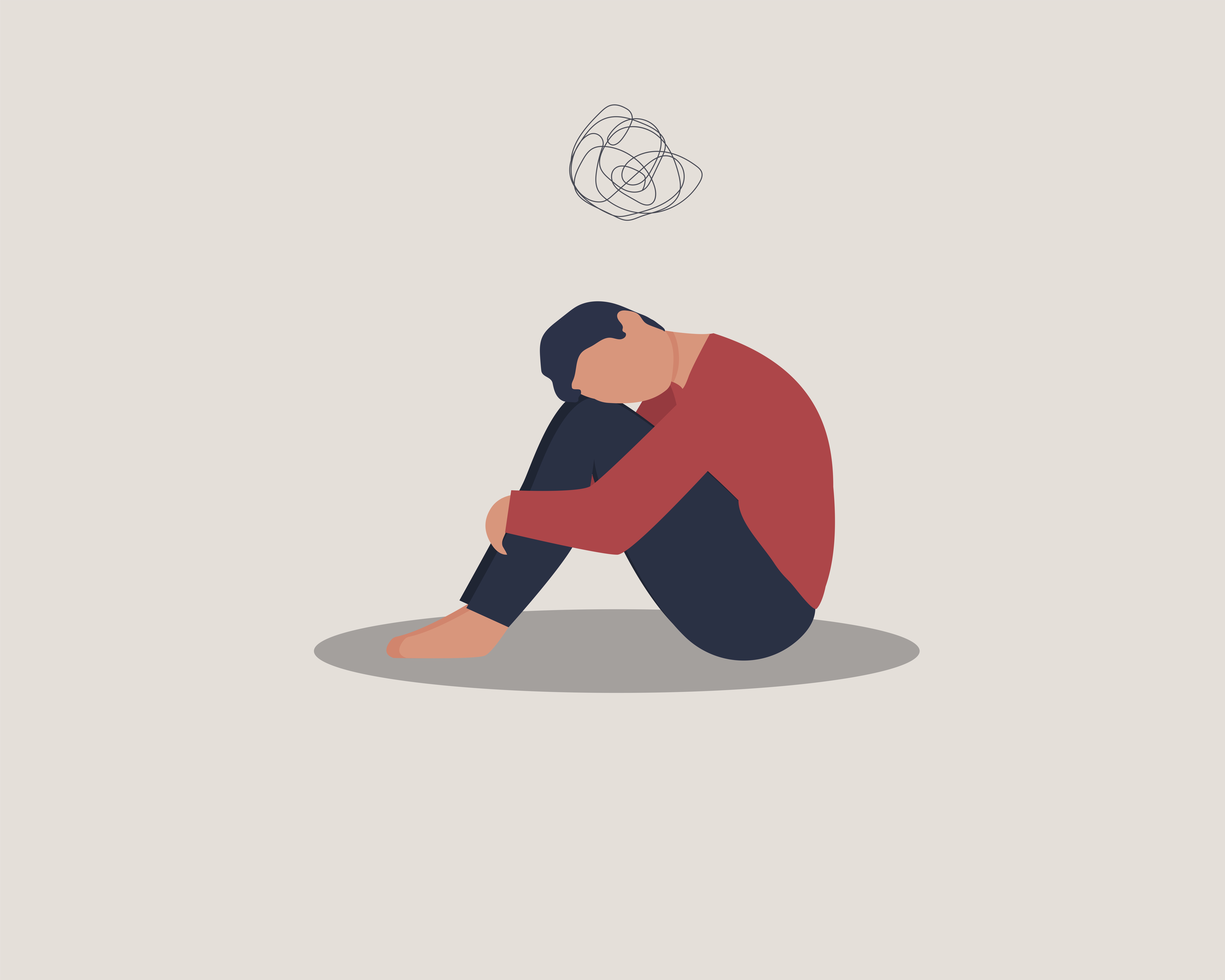How Can I Help a Friend Who Has an Eating Disorder?
“Compassion is not a relationship between the healer and the wounded. It’s a relationship between equals. Only when we know our own darkness well can we be present with the darkness of others. Compassion becomes real when we recognize our shared humanity.”
―Pema Chödrön
Before approaching your friend or family member, keep in mind that we all struggle with something. Most of us want help when we are suffering. However, those with eating disorders can seem to have a different attitude.
Someone with an eating disorder—or even just symptoms of an eating disorder—often has great difficulty seeing their own suffering. Some may feel that they are doing everything in their power to be “perfect,” yet in reality are harming themselves unintentionally. Others may feel out of control with food and eating. Keep in mind that even a person who looks healthy to others may have a serious eating disorder.
Helping a friend with a suspected eating disorder is one of the most caring things you can do. Try these steps:
- Find a safe space where you can talk.
- Calmly tell your friend what you have noticed about their thinking and eating behaviors. Perhaps you have noticed them avoiding certain foods, skipping meals, or obsessing about their body. Be compassionate and without judgment. Even if your friend’s illness started with an intention to diet, having an eating disorder can feel like a mental prison even for those who are fearful about giving it up.
- Refrain from making comments about their weight or appearance, because eating disorders can occur in people of any size.
- Encourage your friend to seek professional help. Offer to research specialists or make appointments.
- Consider offering to drive them to the appointment, since denial and ambivalence are major barriers to getting started in treatment.
Too often, people with eating disorders feel as if they are not sick enough to need help, and they will put off appointments. This makes your role as a trusted and reliable friend very important.

How Do I Know If I Have an Eating Disorder?
“It doesn’t matter how out of control you might feel around certain foods at the moment. You can gain freedom. You really can.”
—Jean Kristeller
Full recovery is possible, so if you have an eating disorder, the sooner you know the better. If you are ready to find out, ask yourself some of the following screening questions to get a sense of whether you might need professional advice and, potentially, treatment:
- Do you think about food, weight, your shape, or exercise most of the day every day?
- Do you feel shame when you eat?
- How much more or less do you feel you worry about your weight and body shape than other people your age?
- How afraid are you of gaining a few pounds?
- When was the last time you went on a diet?
- Compared to other things in your life, how important is your weight to you?
- Do you ever feel fat?
- In the past 3 months, how many times have you had a sense of loss of control and you also ate what most people would regard as an unusually large amount of food at one time?
- Do you eat much more rapidly than most people around you?
- Do you eat until feeling uncomfortably full?
- Do you eat large amounts of food when not feeling physically hungry?
- Do you eat alone because of feeling embarrassed by how much you are eating?
- Do you feel disgusted, depressed, or very guilty afterward?
- How distressed or upset have you felt about these episodes?
- Do you ever make yourself throw up as a mechanism to control your weight?
- Have you ever used diuretics or laxatives in the past month?
- How often, in the past month, have you exercised excessively (for example, pushed yourself very hard, stuck to a specific exercise schedule even when you were sick, or felt compelled to exercise)?
- How often, in the past month, have you fasted when it was not recommended by a medical doctor or for religious reasons (for example, intentionally not eaten anything for at least 24 hours in an attempt to prevent weight gain or to lose weight)?
- Do you use diet pills or powders, or take muscle-building supplements, without a doctor’s orders?
- Do you consume a smaller amount of food than most people your age and gender on a regular basis to influence your shape or weight?
This survey is not meant as a diagnostic tool. But if your answers validate your concerns about your weight or shape, or about engaging in behaviors that may be putting your health at risk, your symptoms may indicate that you are at risk for or struggling with an eating disorder.
Asking for help can be scary, but your medical doctor, a therapist who specializes in eating disorders, or a registered dietitian can get you started on treatment—or you can email me for referrals. I am here to reduce barriers so you can be well. We have treatments that work. If you have an eating disorder, it is not your fault—you may be genetically vulnerable. However, it is important to take the first step to get your health and happiness back.

What Are the Physical Symptoms of an Eating Disorder?
“Eating disorders are serious brain-based disorders with significant medical and psychiatric morbidity and mortality. Patients of all body shapes and sizes may have an eating disorder; the vast majority of those with eating disorders are not visibly emaciated. Eating disorders are treatable and full recovery is always possible.”
—Academy for Eating Disorders
Eating disorders can be life threatening, so it’s important to seek help if you suspect that you have one. If you have any concern, that is already a red flag.
Take an honest look at changes in your thoughts: Rather than focusing on your appearance, check on how your thinking has changed when it comes to eating and your body. An eating disorder may have significantly impacted how you organize your life around food, dieting, exercise, or socializing.
Ask yourself if your exercise routine has gone from a choice to a demand: Even if fitness is important to you, you should be able to take a day off when you are feeling sick or too busy. Eating disorders act like a bully telling you how you should eat, exercise, and look.
Each eating disorder—binge eating disorder, bulimia nervosa, anorexia nervosa, and avoidant restrictive intake disorder—has very different physical complications. Since there are too many to name to be inclusive, below are some symptoms to look out for. Certain physical signs relate only to one eating disorder, so it is unlikely anyone would endorse them all.
- withdrawal from social activities involving eating
- restricted eating
- sudden recognition of weight loss or gain
- low or high blood pressure
- dizziness
- weakness
- difficulty falling asleep or frequent waking
- poor circulation
- overconcern about weight or shape
- shame after eating
- slowed heart rate
- feeling colder than others
- high cholesterol
- loss of tooth enamel
- purging
- type 2 diabetes
- hormonal irregularities
- heart palpitations
- stomach problems
- gallbladder problems
- obsessive weighing
- eating in secret
- excessive exercise
- low red or white blood count
- excessive dieting
- swelling around salivary glands
- low potassium
- anemia
- dry skin
- hair loss
- obsessive thoughts about calories
- binge eating
- weight loss or weight gain
For more in-depth information, access the free publication from the Academy of Eating Disorders, Eating Disorders: A Guide to Medical Care. If you have any worries about what you are experiencing psychologically, nutritionally, or medically due to eating or exercise, reach out to a professional.
No matter how you are feeling today, sharing what’s going on with someone you trust, taking positive action, and staying hopeful makes all the difference.
Full recovery is possible.
Have more questions about eating disorders? Read Part I of the eating disorder FAQs at my blog.
All Blogs


